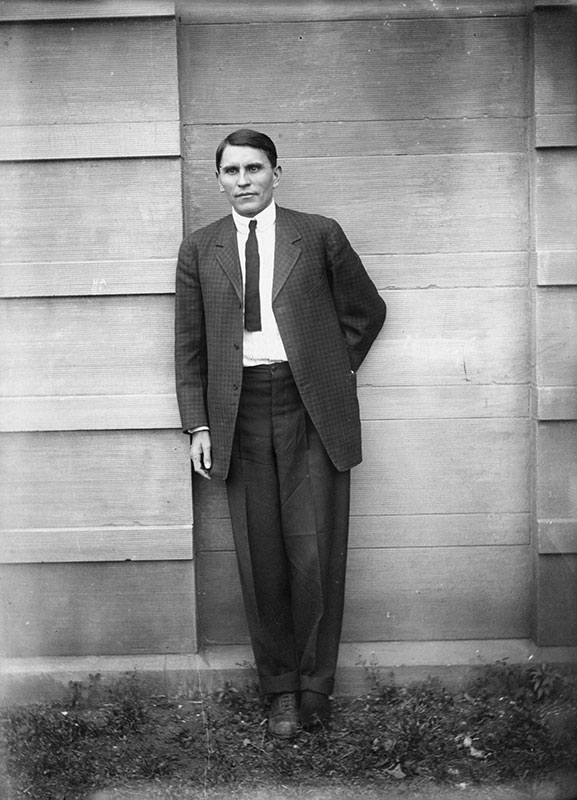
STARR, HENRY (1873–1921).
An outlaw who claimed to have robbed more banks "than any man in America," Henry Starr was born on December 2, 1873, near Fort Gibson in the Cherokee Nation, Indian Territory (present Muskogee County, Oklahoma). A mixed-blood Cherokee, he was a son of George "Hop" and Mary Scott Starr and was a nephew of Myra Maybelle Shirley Starr, better known as "the Bandit Queen," Belle Starr. After receiving the equivalent of a sixth-grade education, Starr moved with his family to the vicinity of Nowata and worked as a cowboy. (Despite his limited schooling, Starr was an intellectual. While incarcerated, he read classical literature, studied law, wrote his autobiography, contributed newspaper articles, and tutored inmates.)
After being falsely accused of stealing a horse, Starr robbed Nowata's railroad depot in summer 1892. Jailed at Fort Smith, Arkansas, he was released on bail but failed to appear in court. In December 1892 he killed a deputy U.S. marshal who attempted to detain him. After robbing a Bentonville, Arkansas, bank in June 1893, Starr was arrested in Colorado Springs, Colorado, extradited to Fort Smith, tried, and sentenced to fifteen years in prison. A model inmate, he was pardoned in 1903.
Starr resumed his criminal activities in 1908 by robbing banks in Kansas and Colorado. Apprehended in Arizona in 1909, he served time in a Colorado penitentiary. Released in 1913, he returned to Oklahoma and became a suspect in a series of bank heists. On March 27, 1915, he and six accomplices attempted, simultaneously, to rob two Stroud, Oklahoma, banks. Wounded, Starr was captured and received a twenty-five-year prison sentence.
Paroled in 1919, he joined a motion-picture company and made Debtor to the Law, a silent film about the Stroud robberies. Financially strapped, on February 18, 1921, he and three others robbed the People's National Bank of Harrison, Arkansas. Starr was mortally wounded during the crime and died four days later. He was buried at Dewey, Oklahoma.






